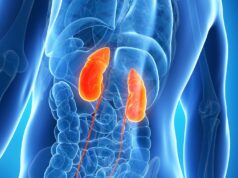 Talaris Therapeutics today provided a clinical update on its ongoing phase 3 FREEDOM-1 study of FCR001—the company’s investigational allogeneic cell therapy designed to induce immune tolerance to a kidney graft in living donor kidney transplant recipients. To date, Talaris has enrolled 22 donor-recipient pairs and seven patients have been successfully dosed at five different trial sites in the study.
Talaris Therapeutics today provided a clinical update on its ongoing phase 3 FREEDOM-1 study of FCR001—the company’s investigational allogeneic cell therapy designed to induce immune tolerance to a kidney graft in living donor kidney transplant recipients. To date, Talaris has enrolled 22 donor-recipient pairs and seven patients have been successfully dosed at five different trial sites in the study.
According to a press release, all three patients who were dosed more than 12 months prior to the data cut-off date have been successfully weaned off all chronic anti-rejection drugs without evidence of rejection and with stable kidney function. All of these patients, including the first patient—who is now 24 months post-transplant—continue to remain off all anti-rejection drugs. Furthermore, all patients treated with FCR001 at least three months prior to the data cut-off date have achieved and maintained T-cell chimerism levels >50% at each of the three-, six- and 12-month timepoints post-transplant.
The safety profile observed was generally consistent with that expected in patients receiving a kidney transplant and an allo-haematopoietic stem cell transplant (HSCT), according to Talaris. Three cases of low-grade acute graft-versus-host disease (aGvHD) were reported, all of which were treatment-responsive and have since resolved. One of these patients is more than 12 months post-transplant and has been successfully weaned off all anti-rejection drugs. As a result of an internal review triggered by the GvHD cases, the company has modified its mobilisation protocol and added a second post-transplant dose of cyclophosphamide for GvHD prophylaxis. Trial enrolment continues, the release adds.
“Today, organ transplant recipients must take lifelong immunosuppression to avoid rejecting their transplanted organ,” said Talaris CEO Scott Requadt. “These immunosuppressive regimens have significant morbidities, risks and quality of life challenges. A treatment alternative for these patients is greatly needed. The interim update presented today from our FREEDOM-1 study continues to support our prior data and belief that patients who achieve >50% T-cell chimerism at three, six and 12 months after the administration of FCR001 may be durably weaned from chronic immunosuppression without rejecting their transplanted organ.
“Overall, we are pleased with the continued progress of our FREEDOM-1 trial, with seven study patients now successfully dosed and 100% engraftment across all dosed patients, at multiple trial sites. These interim results continue to give us confidence that FCR001 has the potential to transform the standard of care in solid organ transplantation.”
Earlier this month, Talaris also announced the presentation of additional phase 2 data and analyses involving its facilitated allo-HSCT therapy platform at the 2022 American Transplant Congress (ATC; 4–8 June, Boston, USA). In a separate release, the company stated that real-world, retrospective analysis of phase 2 patients versus matched controls found that FCR001-treated patients have improved kidney function and fewer cardiometabolic complications than patients on immunosuppression after five years. And, in a long-term follow up of phase 2 patients, all those originally weaned off immunosuppression have continued to remain off immunosuppression without rejecting their donated kidney, the release adds.
“This study underscores the potential benefits to kidney function and cardiometabolic health experienced by patients who are able to avoid long-term immunosuppression,” Requadt added.












